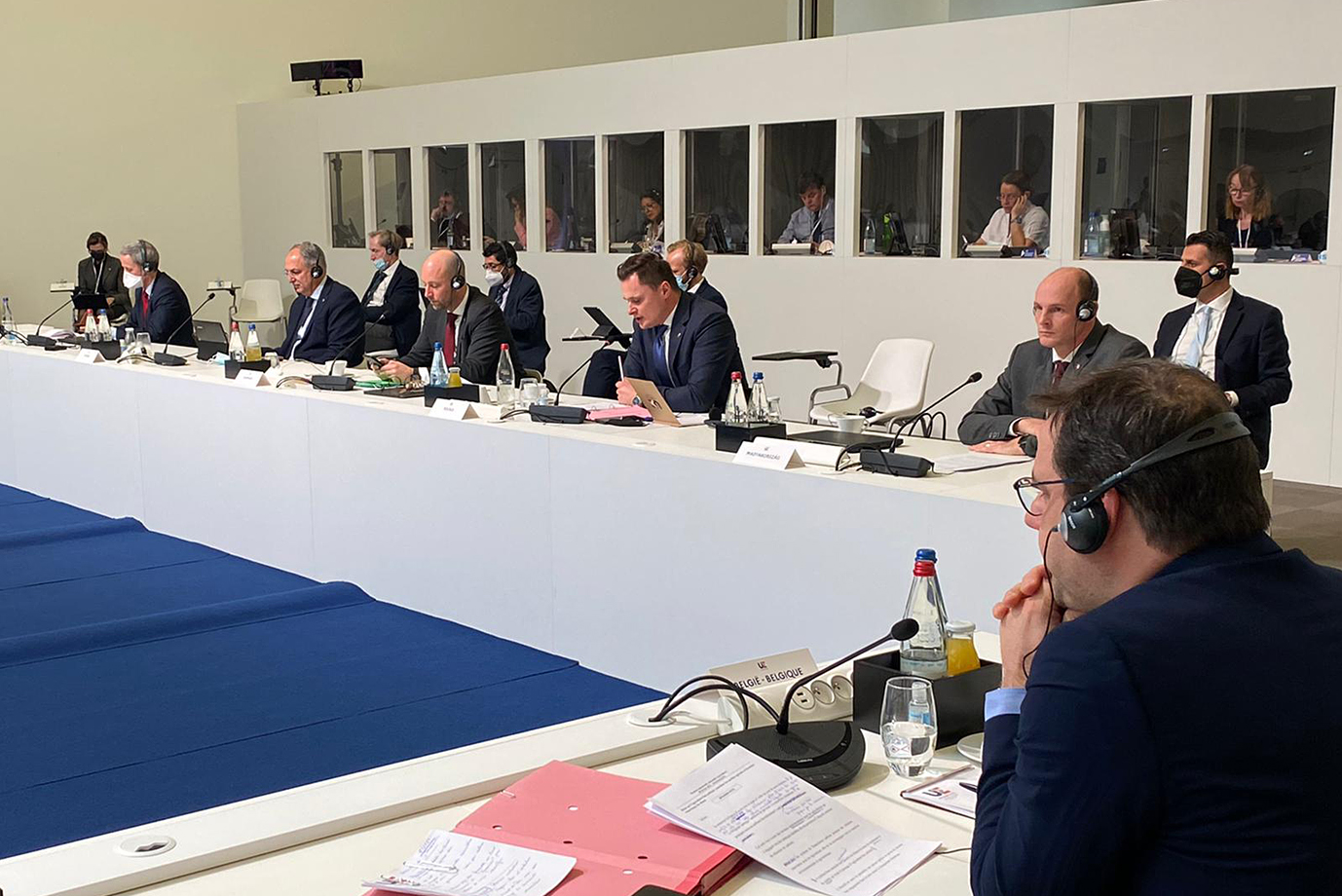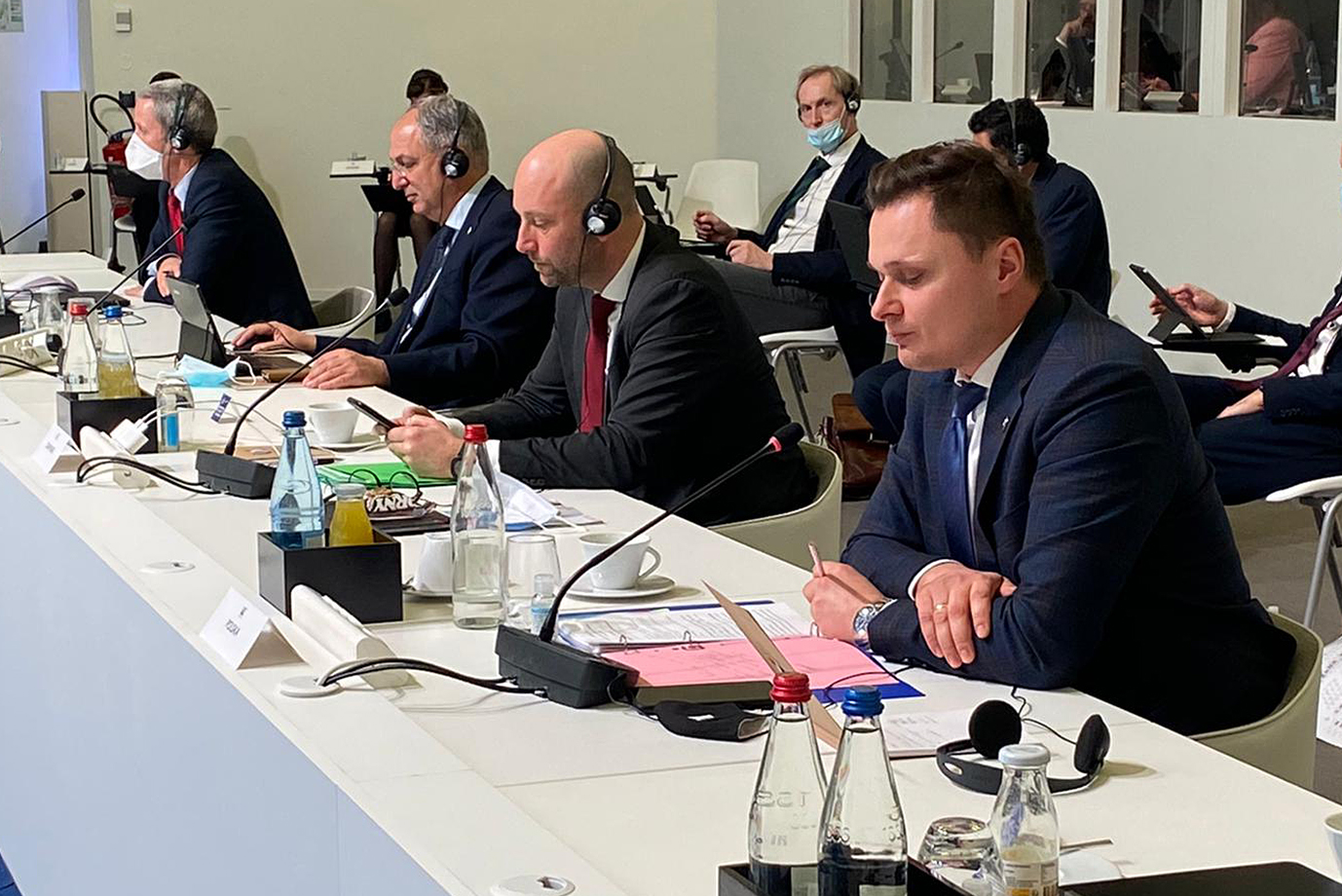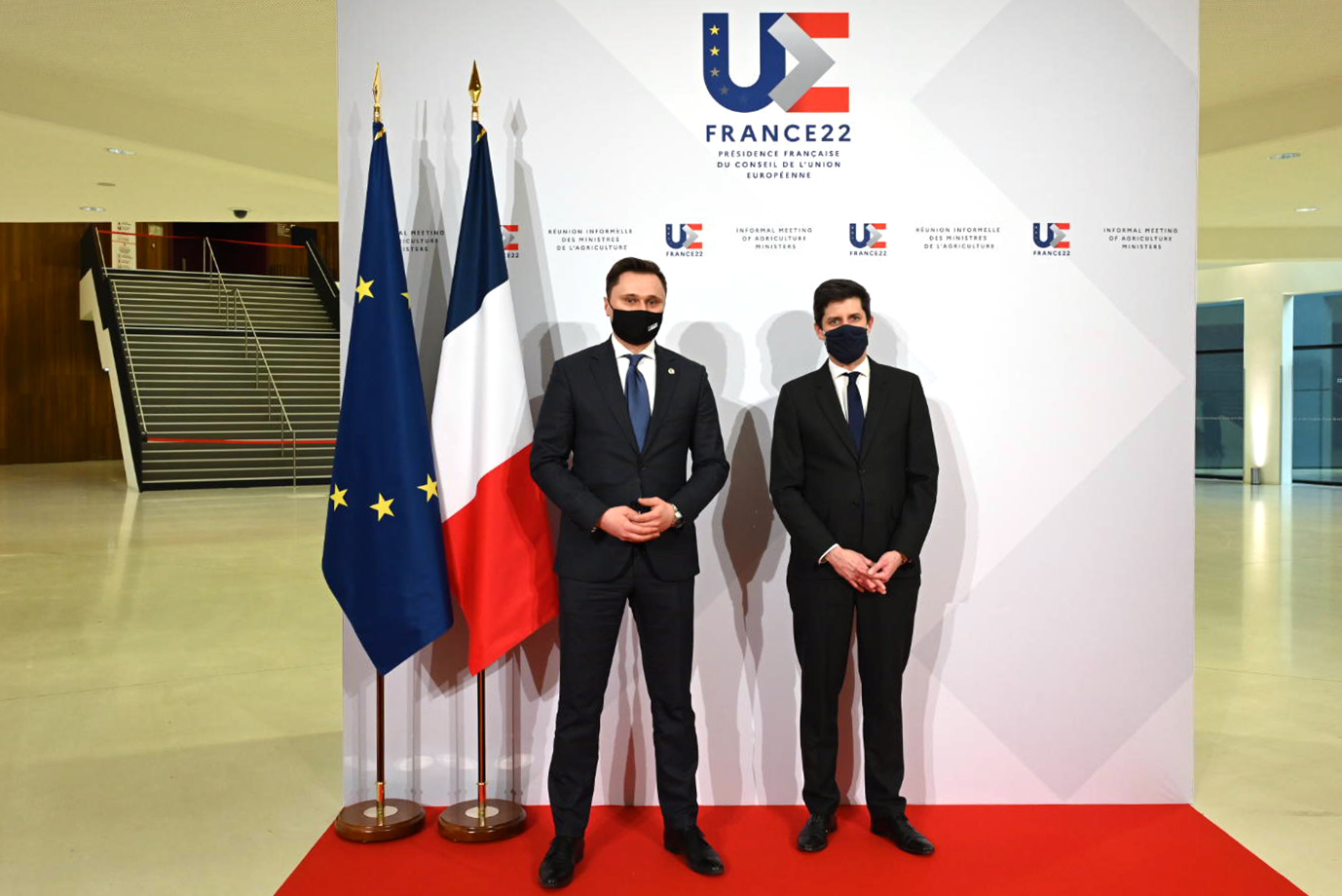Agriculture ministers attend a debate in Strasbourg
08.02.2022
Undersecretary of State Krzysztof Ciecióra attended the informal Council of EU Agriculture Ministers in Strasbourg, devoted to the topic of Consolidating climate-friendly agricultural and forestry models: low carbon agriculture.

The debate of the ministers concerned the communication of the Commission regarding a sustainable carbon cycle. It focused on agricultural and forestry practices to reduce emissions and carbon storage, addressing experiences with private financing mechanisms and certification schemes for reducing greenhouse gas emissions. The ministers also talked about key success factors that could motivate large numbers of farmers to use these schemes.
In his speech, the deputy minister highlighted the important role of forestry and the sector as a whole in carbon sequestration and storage. He also pointed out that the role of peat bogs and wetlands in mitigating climate change should not be underestimated. Although they constitute a limited part of all agricultural land in Poland, nevertheless, the CAP Strategic Plan provides for instruments to protect such areas to preserve natural habitats and birds.
“Some of the practices connected with low-carbon agriculture have already been included in the Polish CAP Strategic Plan. These include practices such as simplified cropping systems, winter catch crops/intercrops, diversified cropping structure, extensive use of permanent grassland with livestock, development of and adherence to a land fertilisation plan, as well as tree-planting interventions” Deputy Minister Ciecióra reported. He also stressed that existing crops that contribute to carbon sequestration should be expanded further.
Referring to certification systems for reducing greenhouse gas emissions, Ciecióra said that Poland currently has solely private initiatives for now, but public systems should be developed. He pointed out that farmers should be encouraged to use them with simple systems that do not place any additional burden on them.
During the debate, the ministers highlighted the great importance of creating a harmonised EU certification scheme for low-carbon farming, noting that it must take into account the specificities of different regions and member states, as well as already existing schemes, while providing a fair legal framework for farmers across the EU.
They also pointed out that farmers should be rewarded for efforts that result in soil carbon sequestration; hence the goal should be to consider both the economic and environmental value of the actions taken.
According to the member states, transfer of knowledge and information are key to the success of low carbon farming and garnering the interest of farmers. That is why additional efforts should be put in reducing the administrative burden of it. The ministers also pointed out that food production continues to be the main focus of agriculture as a whole, which should also be taken into account when setting up a carbon credit scheme.
EU Agriculture Commissioner Janusz Wojciechowski highlighted the opportunity offered by low carbon farming as a new business model that is fully in line with the EU’s efforts to achieve climate neutrality by 2050 as an action aimed to improve the climate and soil, thus increasing the overall productivity. It may also constitute an additional source of income for farmers.



